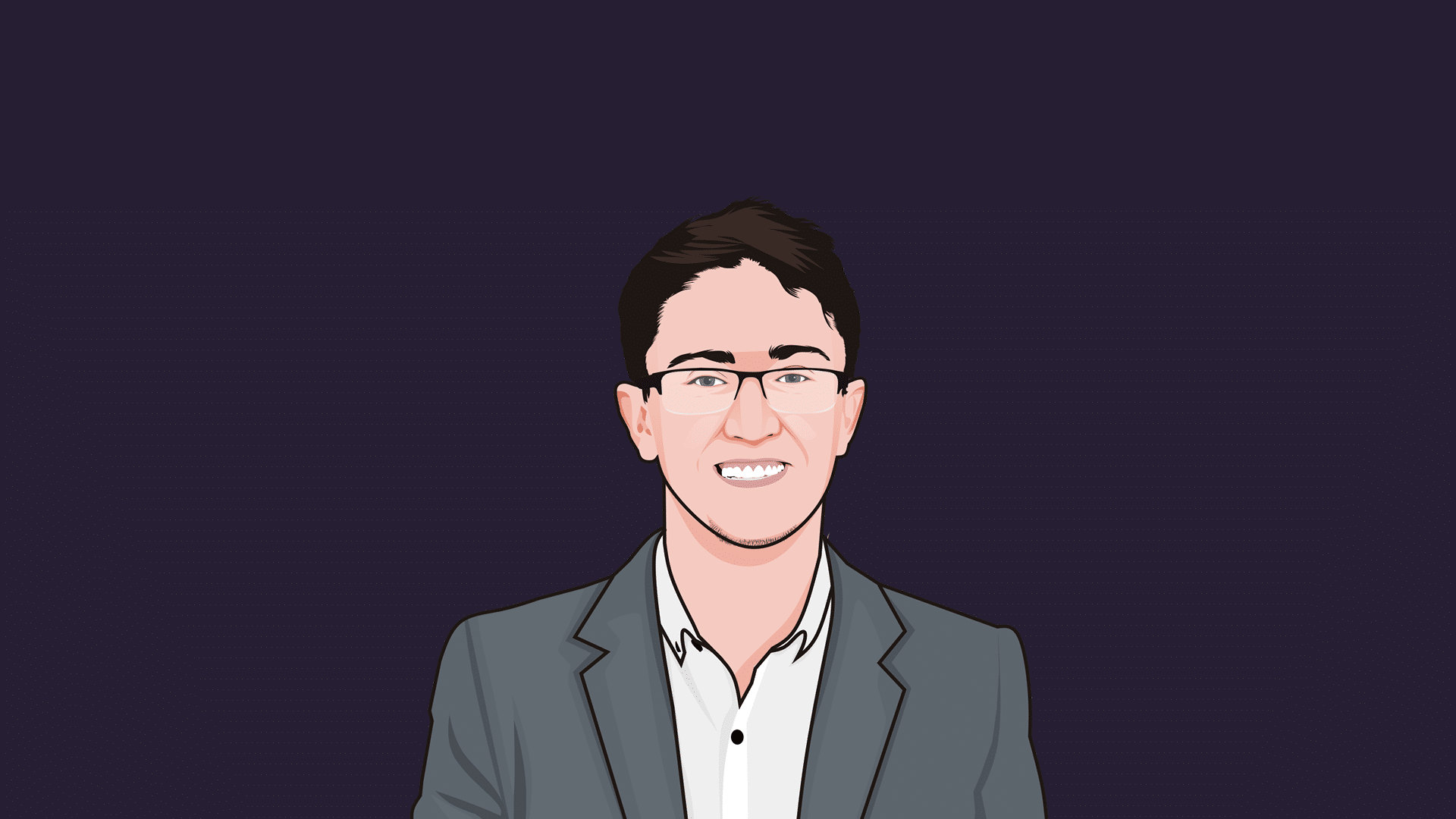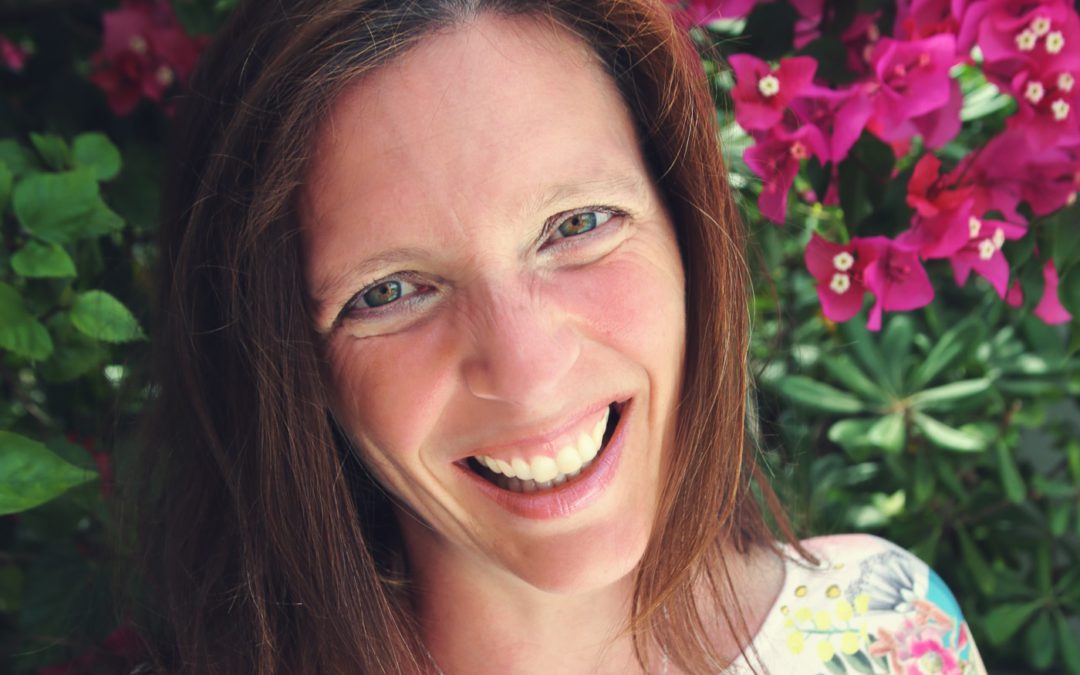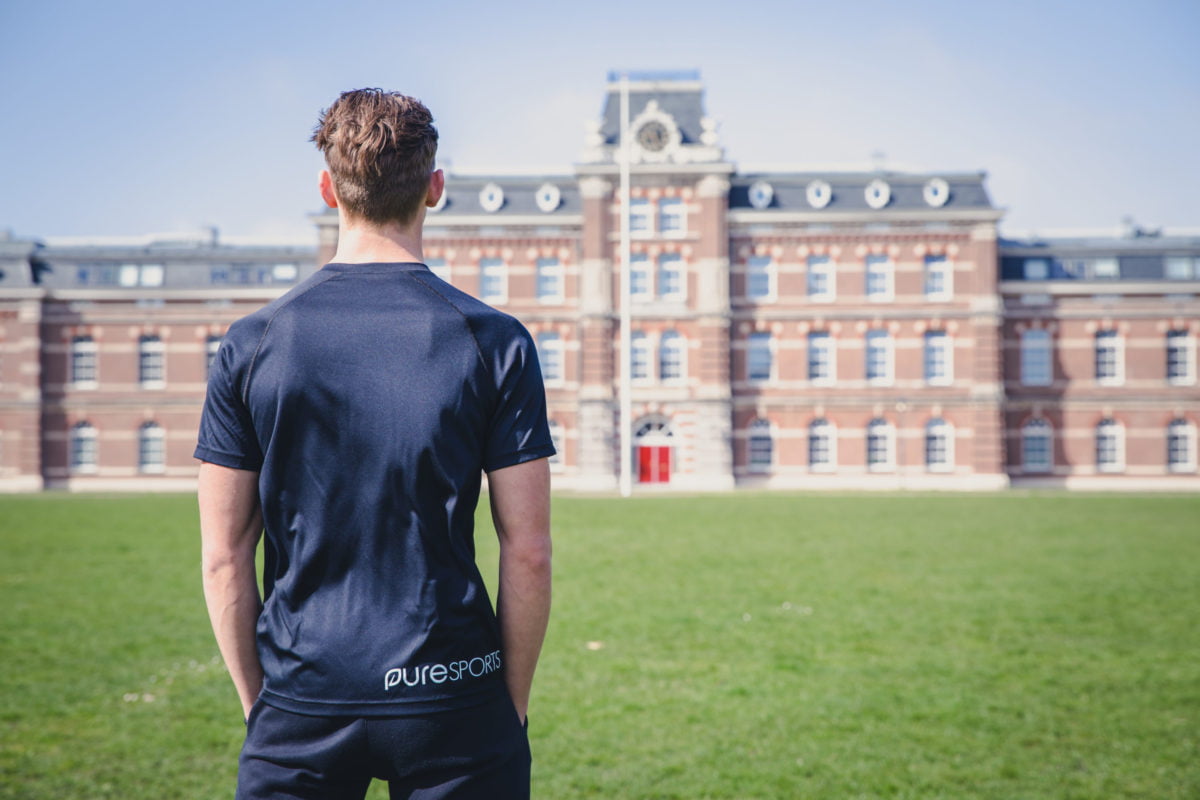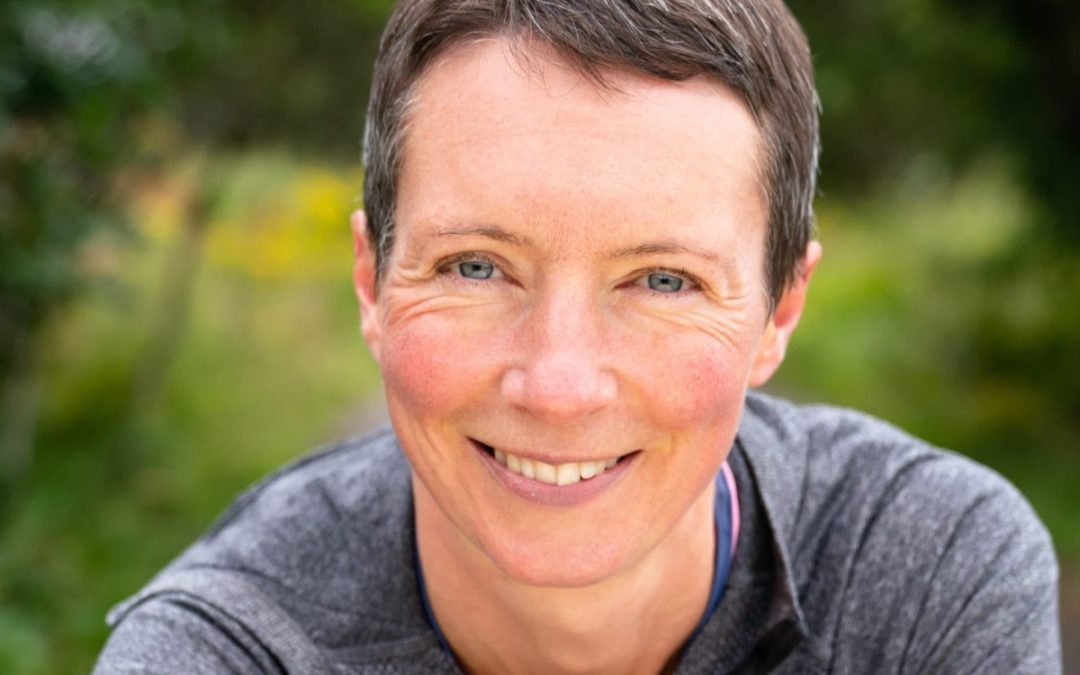Our very first Entrepreneur Empowerment interview is with Patrick Kelly, founder of cloud-connected technology provider, Adapt. Delving into “the entrepreneur’s condition”, we explore Patrick’s first glimpse of his entrepreneurial spirit, how this inspired him to set up his business Adapt, and what he’s learnt along the way.
A big believer in the importance of passion in work, Patrick draws upon the importance of tech giant Steve Job’s words: “People say you have to have a lot of passion for what you’re doing and it’s totally true, and the reason, because it’s so hard, and if you don’t, any rational person would give up.”
A Bit About the Founder, Patrick Kelly
Growing up, I had, among other interests, two key passions; golf and computers and technology — I know, not exactly similar! The first I have my dad to thank for. He got me into the wonderful sport of golf from a young age (around 8-10 years old). I spent much of my childhood evenings and weekends following him around a golf course, trying to knock a little white ball into a hole in the ground.
While I discovered computers and technology at a similarly young age to my interest in golf, it wasn’t until slightly later in my childhood that I started to become passionate about it. This process was helped by my brother’s interest in technology at the time; I distinctly remember following him around our house and our neighbours watching him fix broken computers and other gadgets.
It wasn’t until later in my teens that I realised and made the decision that IT was going to be a far more viable career option for me, however. This was when I started to teach myself the basics of coding and started building basic websites for myself, family and friends. I soon became addicted to the feeling of elation when being faced with a problem, having established a solution and after hours or sometimes even days of attempts, seeing that solution eventually solve the original problem. There’s still no better feeling and I’m pleased to report that problems rarely keep me struggling for days on end anymore!
If I had to summarise myself, I would say I’m a resilient, ever-optimistic and passionate person who loves spotting ways in which things in the world can be improved and then improving them. If I can leave the world in a better place than when I entered it or have a positive impact on someone else’s life during my fleeting time on this planet, I’ll consider it a success.
About the Business, Adapt
Adapt is a digital product agency and our purpose is to create solutions to real-world problems by applying our skills in innovation, design and technology. In more plain English, we create software that saves companies time, money and hassle.
We love to have an open, honest discussion with the decision-makers in businesses about how their company is currently operating. Covering almost all aspects of their business from customer onboarding to providing their product or service. We help identify areas of businesses which could be operating more efficiently, with fewer errors and less stress. And then improve those areas with innovative software solutions.
Did your entrepreneurial journey start here?
Not quite. The time I have spent running Adapt for the past five years has been my latest entrepreneurial endeavour. Having grown up in a relatively entrepreneurial family, with both my dad and brother running their own businesses, I developed what I call “the entrepreneur’s condition” quite early on in life.
From cleaning cars, mowing neighbours gardens and working a paper round — I’ve explored many different avenues to make money. With the majority of them being in a scenario where I call the shots and decide or at least am able to negotiate the terms.
Why did you set Adapt up?
Immediately before starting Adapt, I was a freelance programmer. During this time I witnessed the frustration my own father was going through with his invoicing process. This was before the likes of Quickbooks, Xero and other online accounting software hit the scene. He was still creating and sending invoices the common way at the time; via word documents and bless him, it must have taken him a number of hours every week to send in the region of 10-20 invoices.
I realised I could help him with this. By creating a bespoke web application I was able to bring together his contact book, a PDF generation system and an email sending feature. As a result, he ended up saving around 75% of the time compared to the very manual process he was following originally.
This is where the “lightbulb” moment occurred. I figured “If I can do this for my dad and improve his life, surely there are other people and businesses facing similar problems!”. This was the intention behind creating Adapt — to enable people to “adapt” their processes in order to live better lives.
What do you remember about those early days and how have things changed for you?
As I’m sure many other entrepreneurs will say to you, the early days are tough. Really tough. I was fortunate to already have a small client base to work with and build upon from my freelancing days. However starting a new business is like (I imagine) having a newborn; whilst it requires every waking minute of your time to keep things alive, you want to give every waking minute towards it. And I’m pleased to say that I still feel that way. But now I have a small but competent and capable team of colleagues to support me along the journey.
Being totally honest and transparent with you, which I feel is the best policy, we became (happily) distracted from our original mission for a couple of years in the middle of our lifespan. Only recently, six or so months ago, did I realise this and rediscover my passion and drive for us to get back on track with our direction as a business.
Entrepreneurship, certainly sole ownership of a company, is a lonely road to take. You might have more freedom to call the shots without seeking approval from your partners, but it also means you have no one to share the harder times with too.
If there’s one piece of advice I could give for anyone reading this to take away it’s that entrepreneurship isn’t for everyone. You might have an entrepreneurial spirit but that doesn’t mean you have to be the no. 1 at the company — you can become a very good no. 2 or even 3 with far less of the stresses and hassles which come with being the no. 1.
What/Who has helped you along the way to continue to grow and evolve?
As I was technically already in business before starting Adapt, the process of transitioning to doing everything under a company name and image, rather than as myself was a rather smooth process. I was fortunate enough to have been “firmly encouraged” by my then-girlfriend, now fiance, to explore The Prince’s Trust — and I thank my lucky stars I listened!
Having completed their Business Enterprise programme, I was able to experience four intense and in-depth days in Business101. Everything from the legalities of how to structure the business (e.g Sole Trader, Limited Company, Partnership etc) through to market research and the day to day operations, such as finances.
Do you have mindset musts that you swear by?
Optimism is key. Let me be clear here about what I mean by “optimism” as many people get it confused with delusion. Optimism isn’t blind faith and it’s not ignorance to all of the realistic points which may suggest something isn’t possible. Optimism is when you’re faced with a situation where 95% says it could go wrong and only 5% that it could go right. You believe in the 5% where it could go right more than the 95%.
I have lived through numerous situations in my life where I have believed, for a long time, in a scenario coming to fruition and seemingly the stars align for it to happen. As a result, I’m a firm believer that you can will something into existence. If you want something badly enough, you will achieve it.
Something more recently that I have noticed, during lockdown, which is having a dramatic impact on both my mental and physical health is going for a 45-60 minute walk every morning when I first get up. Before anything else, I get dressed in some appropriate clothing (gym wear, usually) and go for a walk around my local area. It’s by no means a dawdle, it’s a rather quick-paced walk — something which gets my heart rate up, without putting too much strain on the body.
It seems this has an extended impact on the rest of my day, it gets those endorphins flowing which help me to get through the tougher parts of my day(s) when they occur. As it is such a low impact way of getting in some exercise, I highly recommend it to everyone! It’s also a great way to clear the mind and, if you go alone, you can also fit in time for that podcast you’re not getting a chance to listen to during the hustle and bustle of everyday life.
How do you cope with and overcome barriers?
I’m very fortunate to be able to surround myself with mentors and those I aspire to be like. Having people like this who are there to support me during those more challenging times has been and continues to be invaluable to me. If you know anyone who has either trodden a similar path to you or experienced any similar struggles, then try and connect with them. I would be very surprised if they flat out refused to offer you a helping hand.
Additionally, I’m fortunate with the line of work and the skillset I trained in. Computer programming teaches you how to think — which might sound like a silly statement at first. However, at its core, computer programming is essentially just giving a computer an extensive list of instructions for what you’d like it to do for you. The nature of this allows you to break down what many might consider an insurmountable task or blockage, into smaller more granular achievable tasks. It’s much like the phrase: “How do you eat an elephant? One bite at a time”.
What do you define as success for you and how do you celebrate it?
As I believe I mentioned in my brief rundown about me at the start of this article, if I can leave the world in a better place than when I entered it or have a positive impact on at least one other person’s life during my fleeting time on this planet, I’ll consider it a success.
I see life as a journey and thus we must be careful not to set a target or a fixed point in time whereby we would consider our lives to be “a success” or “successful”. This can be very dangerous for our mental health as we may never achieve the said goal(s) and therefore never consider ourselves “successful”. Contrastingly, we may achieve them too soon which would result in us having little else to aim for or find ourselves in a continual spike/dip fluctuation.
Instead, I believe we should celebrate moments throughout our lives as and when they occur. We should strive for something bigger than ourselves, something which isn’t measurable and certainly isn’t materialistic but is meaningful. This is why I aim to leave a positive impact on those around me. I don’t have a fixed goal as to the number of people I want to impact and I don’t measure whether I have or have not had a positive impact on them. I simply aim to please as I know if I do this, I can do no harm.
What are the top lessons that you’ve learnt as an entrepreneur?
Curiously I’ve just written my first LinkedIn article on this very topic! Specifically, 5 lessons learnt from 5 years in business. You can read the article in full here. However, in summary, they are:
- Trust shouldn’t be earned
- There’s no blueprint to follow
- Take more risks
- Hire people who truly bring value, not just more hands on deck
- Trust and enjoy the journey
What are your top tips for anyone dreaming of setting up their own venture, struggling with getting it off the ground, or are in it, but finding it hard, particularly amid COVID-19?
There’s a great video clip of Steve Jobs in a panel alongside Bill Gates where he made this statement, which I wholeheartedly believe in (I’m paraphrasing from the video):
“You’ve got to have passion and the reason is, it’s so hard that any rational person would give up.”
When you’re faced with the tougher times, and you will be faced with tough times as an entrepreneur, you need an undying light. A flame that will keep burning, sometimes dimmer others brighter, but always alight — that will keep you going. That, I believe, is passion.
The other most important point I would like to end on, and some might see this as a negative but I really don’t, is to know when to quit. Knowing when to quit is more powerful than having the courage or blind determination to continue pushing forwards with something which isn’t working. At the end of it all, none of us are going to live forever (at least not currently!) and so we all share a finite amount of time. None of us know how much time we have on our clocks and so if you find yourself months or heaven forbid, years into a project or business which isn’t providing any return, cut it loose. Rip the plaster off and move on.
Check out our entrepreneur empowerment movement here or over on Instagram @lionspiritmedia.





0 Comments